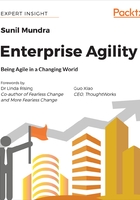
Need to reinfuse "life" into enterprises
A fast-changing environment necessitates that businesses have agility, that is, they should be organic like living systems and not lifeless like machines.
According to Michelle Holiday, president of Cambium Consulting:
"This new story is emerging all around us, though few have connected the dots. Why does a flat, networked organization now seem the better choice, when we've relied on rigid hierarchy for so long? Why do we need to engage the passion of people within, when for so long we've considered them simply 'labor'? Why do we need to engage customers in meaningful conversation, when for so long it was enough to deliver a quality product? The answer is that each of these is a move in the direction of resilience, adaptability and creativity. In other words, it's a move in the direction of life." [vi]
A timeless fact about businesses is that they have always had people. Of course, while machines may be more significant in some companies than others, depending on the nature of the industry they are in, the indisputable fact is that people have been and still are an enterprise's most valuable asset. This can be easily corroborated by examining the extent of people-centric agility that a business has at the startup stage. Most businesses lose agility as they grow in scale, as the mechanistic model gets applied after the enterprise grows beyond a certain size. Exceptions to this are companies such as Google and Apple, which appear to maintain their agility despite continuing to grow in size. Given that the mechanistic modeling of companies is stifling agility, it is necessary to free the enterprise from the clutches of this largely obsolete model and bring the business back to life.